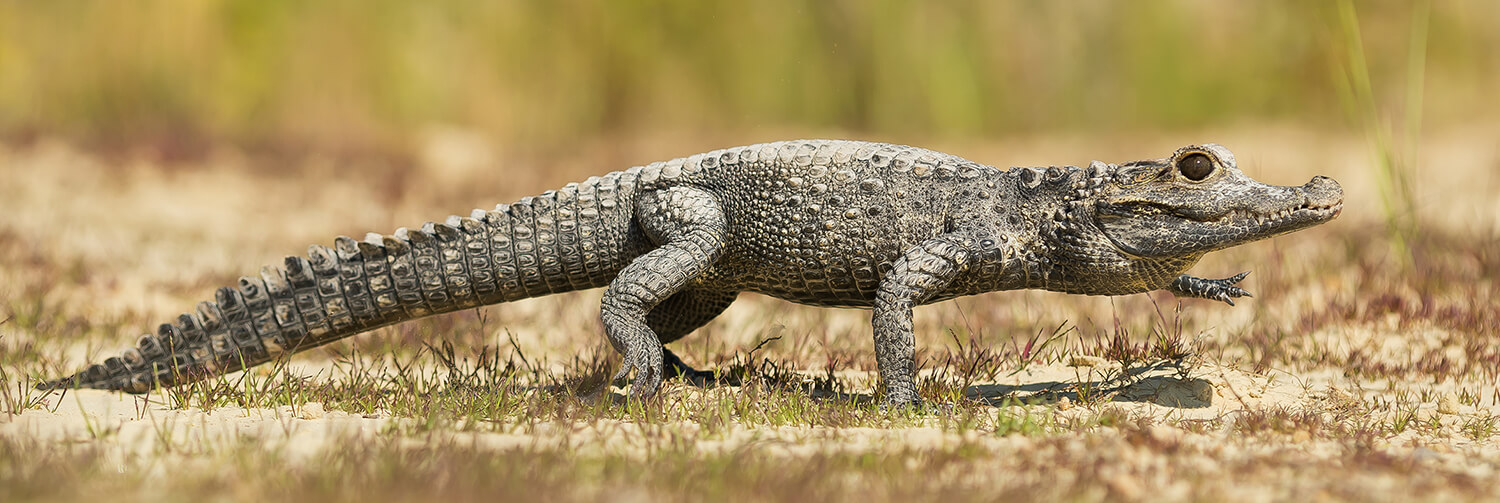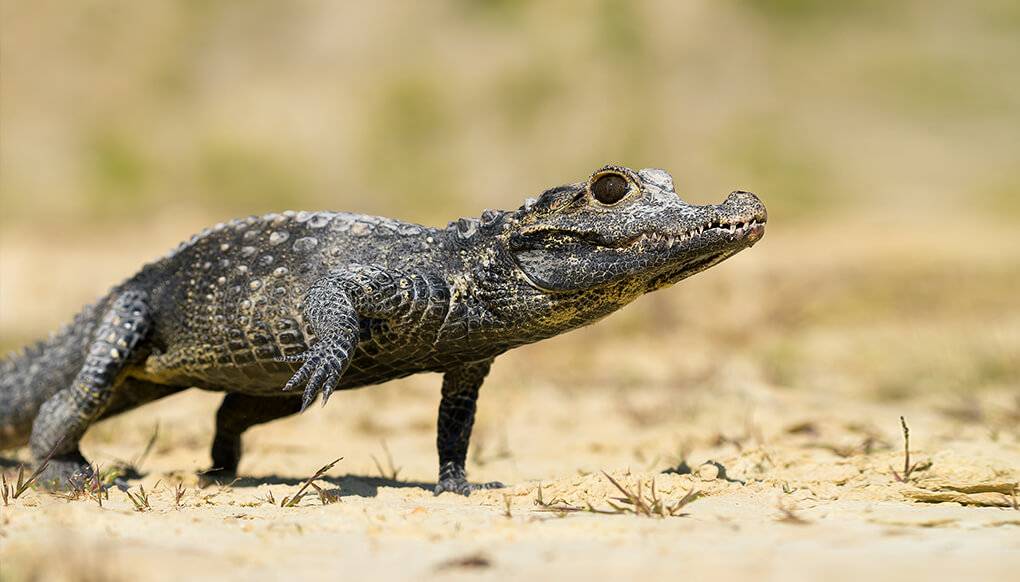A new study from researchers at the Wildlife Conservation Society (WCS) has uncovered secrets of the mysterious pygmy Nile crocodile. Once thought to be a unique population of the more well-known Nile crocodile, the pygmy Niles are in fact a very distinct crocodile species of West Africa. A couple years ago, their existence was confirmed within the nation of Uganda. The recent WCS study found that their habitat extends into more areas, shedding insight upon this beautiful rare creature.
The WCS field team were composed of Ugandan researchers, trained by the late John Thorbjarnarson, who succumbed to malaria in 2010 at the age of 52. Thorbjarnarson was a distinguished crocodile expert with WCS who had worked in 30 countries in the effort to conserve and protect crocodilians.
“It is an honor to continue John’s work in Uganda to protect the pygmy Nile crocodile,” said Carol Bogezi, a WCS Field Coordinator in Uganda. “John trained us on how to survey and handle crocodiles and we apply what he taught us every day.”
The team conducted population surveys in Uganda’s Kidepo Valley National Park. Located in the northeastern corner of Uganda, Kidepo is a rugged savannah at the foot of Mount Morungole. The valley is transected by the Kidepo and Narus rivers. These rivers form the ideal habitat for the pygmy Nile crocodile.
In honor of the late Thorbjarnarson, WCS is working hard to protect crocodiles throughout the world. They are some of the oldest creatures in the world, having changed very little from the dinosaur era many millions of years ago.
However, crocodiles have met their match in modern-day humans who hunt them for their leathery skin and their meat. Plus, wherever humans settle, the crocodile population is exterminated due to threat they pose to people. Hundreds of people die from crocodile attacks each year.
Methods must be established for humans and crocodiles to live in peace. The pygmy Nile crocodile in particular needs protection. This species is very unique and only located in a handful of populations. Thorbjarnarson recognized this and WCS has picked up where he left off.
For more information: http://www.wcs.org/wcs-org/saving-wild-places/africa/kidepo-valley-uganda.aspx



